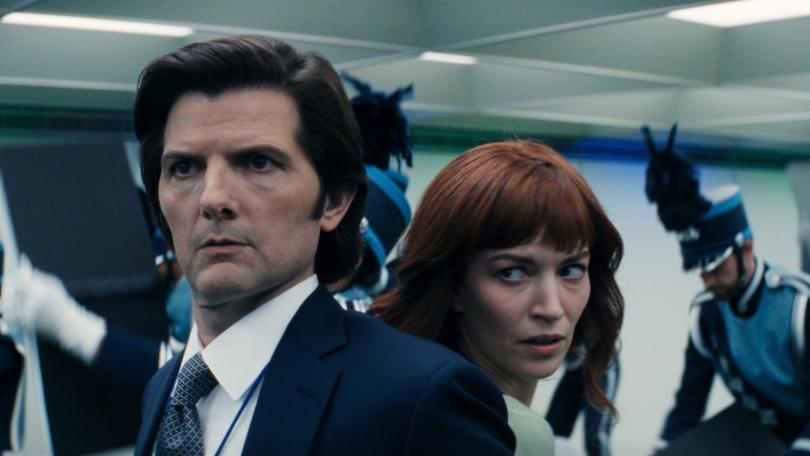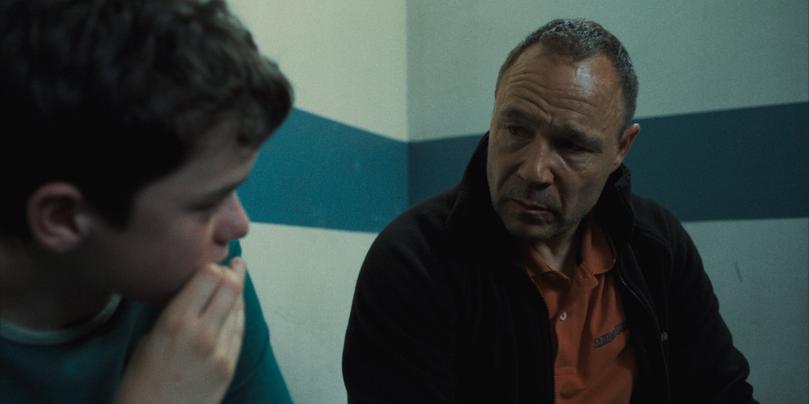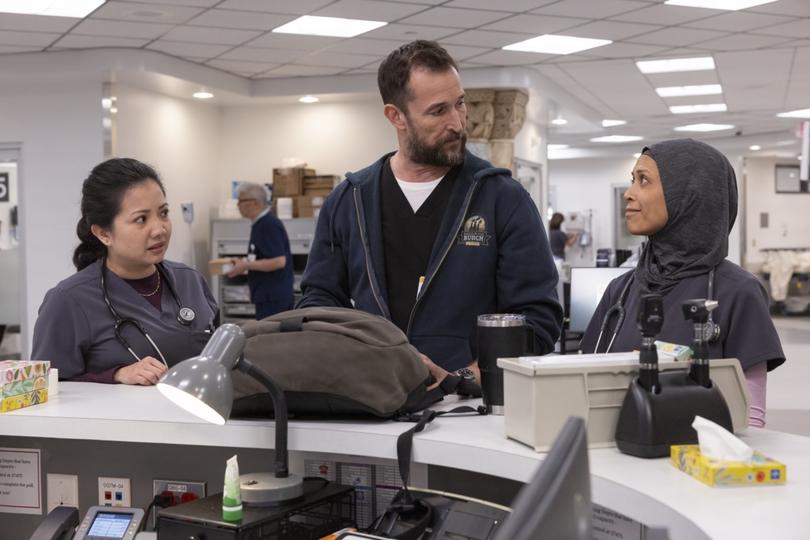Why the binge model sucks and is ruining TV for all of us
Maybe it’s old school, but TV shows that release new episodes on a weekly basis are way more fun to watch. The binge model needs to go.

How many times have you been excited about some new show or returning favourite, sat down after dinner to settle in for a couple of hours of bingeing, only to discover that there’s only one episode?
The impatience is real, with disappointment giving way to frustration as our instant gratification and on-demand culture makes entitled brats of us all.
Binge-watching is convenient and satisfying in the moment, as you burn through all episodes of a season in one day, sometimes three nights if you have more discipline. There is definitely a certain pleasure in being wholly immersed in one fictional world for a long stretch of time.
Sign up to The Nightly's newsletters.
Get the first look at the digital newspaper, curated daily stories and breaking headlines delivered to your inbox.
By continuing you agree to our Terms and Privacy Policy.But bingeing is ruining the culture of TV.
What are the three series that have generated the most buzz this year? Severance, The White Lotus and Adolescence.
They are the stories that seemingly captured the most conversation online and in real life. “Timothy is going to die in the finale, right?”, “Ohmigod, that Sam Rockwell speech”, “Why didn’t Mark leave with Gemma?” and “How did they do that drone shot?”

Of the three, Adolescence was a full-drop binge. It was so undeniable in every way, no matter what format of release, the British drama and its chilling depiction of teenage boys and the manosphere, the artistry of its one-shot episodes, would’ve dominated the zeitgeist.
The other two shows were released week-to-week, which builds conversation and interest, stirring fans up as they wait for the next instalment. What’s the fun in talking about who’s going to die if the answer already exists?
This week, Casey Bloys, the head of HBO, the premium cabler and streaming brand that’s home to The White Lotus and The Last of Us, and classics such as Succession, Veep, The Sopranos and Sex and the City, defended the network’s use of the weekly drop. It works for them, he said.
He told a conference in Los Angeles, “Every week we see the audience grow, and there is an entire ecosystem of people who write about, do podcasts about, discuss TV shows. So, to not take advantage of that, I think, is crazy.
“It’s been proven to us so many times over the (past) 10 years that it works and that creators prefer it that way.”
Would Game of Thrones have been a phenomenon if it hadn’t been bolstered by that ecosystem of fandom that obsessed over every “hint” and “hidden detail”? Unlikely.

The other streamers have experimented too, and while the likes of Disney and Prime have a mix of release strategies, Netflix is the only one married to the binge model.
Bloys added that the week-to-week also didn’t stop someone from later bingeing, “I always feel like it’s the best of both worlds, because if you don’t want to watch something week-by-week at this point now, you can go back and watch all 15 hours of The Pitt.”
The Pitt is a great example to Bloys’ point. The Noah Wyle-fronted medical drama is a newbie. It may have familiar elements but at the start of the year, the name meant nothing to most people.
The show ran for 15 weeks and, in the US, its ratings grew every week, each new episode drawing more than the previous week’s.
That breathing room gave The Pitt space to find an audience, grow its fanbase as more and more people recommended it to their friends, or came across a recap or article online. It allowed people to be part of a collective wave as they discovered the series and followed it along in real-time with other viewers.
If The Pitt had been released all at once, it might’ve spiked a week after that drop or maybe hung around for another fortnight if its most fervent fans was particularly loud.

Even if it had reached as many or even more viewers on Netflix in those first two weeks as it did on HBO and all the various international platforms that carried the show (in Australia, it was on Binge, now it’s on Max), it wouldn’t have had the same level of cultural impact.
Bloys said HBO had experimented in the past with dropping several episodes at once but it ultimately didn’t work. “It didn’t have time to kind of marinate in culture and have people talk about it,” he added.
Plenty of shows are widely watched on Netflix, but a very small percentage cut through and have lasting impact.
Netflix might be credited with the binge-watch and even become a byword for it but the behaviour predates the streaming giant. With the ubiquity of DVD box sets in the early noughties, as well as illegal downloading, bingeing became a favourite past-time for many.
But what Netflix did was change the game, starting with its first original streaming show House of Cards in 2013. Never before had a new series been made available all at once. For the first phase of Netflix’s originals game, it worked.
It was still a novelty, and the shows commissioned by its then originals boss Cindy Holland were well-made, ambitious and buzzy. The platform has long shifted to a quantity over quality business, and there is far too much volume for the vast, vast majority of its releases to make more than a blip.
Do you know what was Netflix’s most watched series by views in 2024? It wasn’t Squid Game (to be fair, this only dropped in late December), Baby Reindeer or Bridgerton, although they are up there.

It was Fool Me Once, which was viewed 107 million times.
One of the 734 adaptations of a Harlan Coben novel (OK, OK, there are actually more like 12, but also, why?), Fool Me Once is exactly one of those indistinguishable, wholly forgettable shows that no matter how many binge it, it will never be buzzy.
Very, very few shows that are binged have the kind of collective power that pushes past the handicap of being a fleeting experience that people watch at random times. It’s not a real communal experience.
Almost everything is better when we do it together. We consider each other’s perspectives, we share in the same giggles or shocks, we get worked up speculating what’s next. In this case, patience is richly rewarded.
In (an empty) space, no one can hear you scream.

